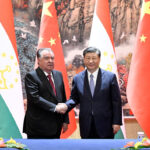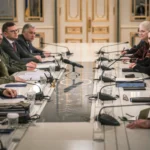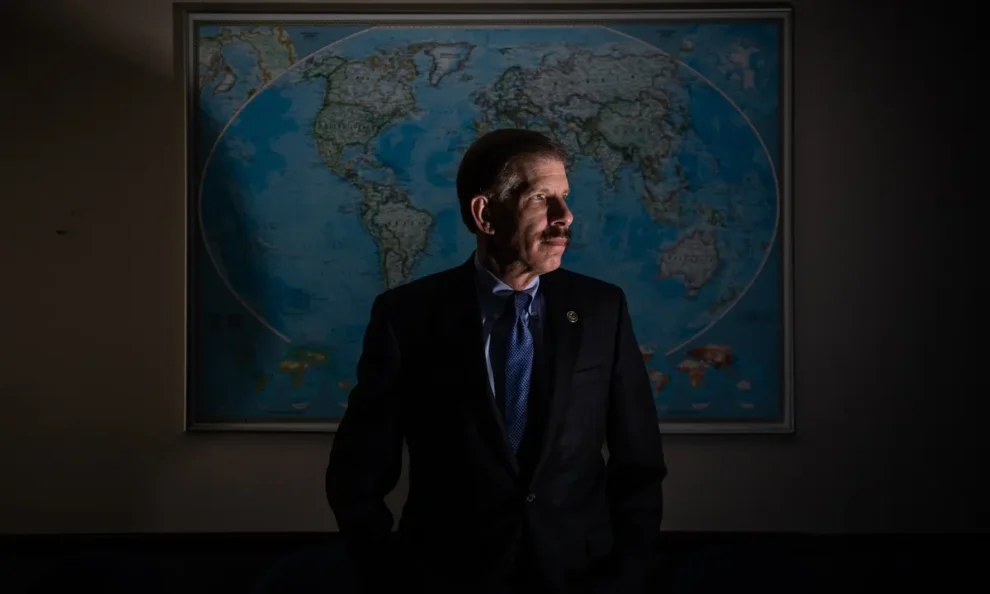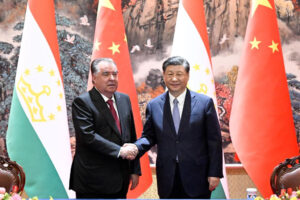The most famous American “Nazi hunter”, US Department of Justice official Eli Rosenbaum has been investigating Russian war crimes in Ukraine on behalf of the US Attorney General in recent months.
During the 35 years that Eli Rosenbaum devoted to hunting down Nazi criminals hiding in the United States, he always looked up to his predecessors in this profession. Now working in Ukraine, he still draws on the experience of the investigators who pursued Adolf Hitler’s henchmen after World War II.
For the first time in his career, Rosenbaum looks for evidence of crimes immediately or almost immediately after they are committed.
“I used to work on atrocity crimes when the conflict was over: World War II, Rwanda, Bosnia, Guatemala, and so on,” he recently told the Jewish Telegraphic Agency. “But in this case, atrocities are committed every day.”
Rosenbaum, 67, said he has been working “if not 24/7, then 20/7” since June, when Merrick Garland, the US Attorney General, appointed him head of the Justice Department’s war crimes Ukraine team. Prior to this, Rosenbaum spent most of his career at the Justice Department’s Office of Special Investigations (OSI), which he directed from 1995 to 2010. OSI tracked down and deported 70 Nazis hiding in the US. In 2004, he expanded his remit to track war criminals who had entered the United States and were involved in other conflicts.
Rosenbaum’s current team, he said, “provides a wide range of technical assistance to the Ukrainian authorities, including operational assistance and advice on criminal prosecution, evidence collection, forensics and related legal analysis.”
In describing his work, Rosenbaum repeatedly returns to the pioneers of war crimes prosecutions, including Robert Jackson, the U.S. Supreme Court Justice who at the Nuremberg trials created the basis for prosecuting Nazis for the “crime of aggression” – a concept hitherto unknown.
According to Rosenbaum, the relevance of the work done by Jackson remains, since Russia does not recognize the jurisdiction of the International Criminal Court, which makes it difficult to prosecute Russians in this body. Instead, Ukraine wants to set up a special tribunal to try Russians, modeled after the Nuremberg trials.
“We constantly turn to Nuremberg, it is the mother of all international crime trials,” Rosenbaum said. “In many ways, these are the origins of international criminal law.”
What is a “crime of aggression”?
Rosenbaum believes that the concept of “crime of aggression” is especially relevant in the case of Ukraine, since the Russian invasion was unprovoked. The term became part of the canon of international law, enshrined in the principles of the Nuremberg Trials and later in the UN Charter, with the blessing of US President Harry Truman.
Rosenbaum recounts how Judge Jackson, in a letter to Truman, explained why there had not yet been a precedent for the prosecution of aggression.
“In the old days, states behaved this way. They attacked each other and, according to international law, they were considered to have equal rights,” Rosenbaum said. “Jackson said it had to end and convinced President Truman of that, and now we have this crime in international law.”
Rosenbaum says Ukraine proves Jackson’s foresight. He quoted Jackson’s opening remarks at Nuremberg: “The significance of this investigation is that these prisoners represent a sinister influence that will lurk in the world long after their bodies have been reduced to dust.”
Rosenbaum, like Jackson before him, is calling on the US government to expand its ability to prosecute war crimes. In his Congressional testimony, Rosenbaum pointed to an unfortunate legal flaw: unlike the crimes of genocide, war crimes must have an American side (perpetrator or victim) in order to be tried in a US court.
“This means that if a war criminal from the current conflict in Ukraine, for example, came to the US today and was subsequently identified, our war crimes law could not be applied to him, potentially allowing this war criminal and others walk the streets of our country without fear of prosecution,” Rosenbaum said in his congressional testimony.
As Rosenbaum investigated Nazi crimes, he met two people he still admires today: Rudolf Vrba and Alfred Wetzler, Slovak Jews who fled Auschwitz and were the first to describe the mechanics of the Nazi genocide to the outside world in a detailed report.
“I got to know Rudolf Vrba, a witness [OSI] in our very first case to go to trial. As a result, the case did not reach the court, we accuse
He gave up, but it was the Auschwitz case, which was considered in Chicago, and Rudolph came there, ”Rosenbaum said.
Now he meets survivors of Russian crimes in Ukraine who are similarly gathering evidence and telling the world about their horrific experiences.
Another pair of Nuremberg researchers whom Rosenbaum describes as being re-imagined are Budd and Stuart Schulberg, Jewish brothers who worked in the CIA’s predecessor Office of Strategic Services under legendary Hollywood director John Ford. The brothers sought out films about the atrocities that the Nazis themselves produced and presented them in court.
“The Schulberg brothers pioneered what is extremely important in the history of law enforcement and prosecution that we take for granted in the 21st century, namely the presentation of full-frame film and video evidence in court,” Rosenbaum said.
According to him, such a collection of evidence is taking place today in Ukraine.
“The Ukrainian authorities, with whom we work very closely, have a website where the public can upload their own videos,” he said. “And now that everyone who has a mobile phone has a video camera… so much evidence of the consequences of atrocities and even the commission of atrocities has been captured on video.”
Source: Detaly News
















